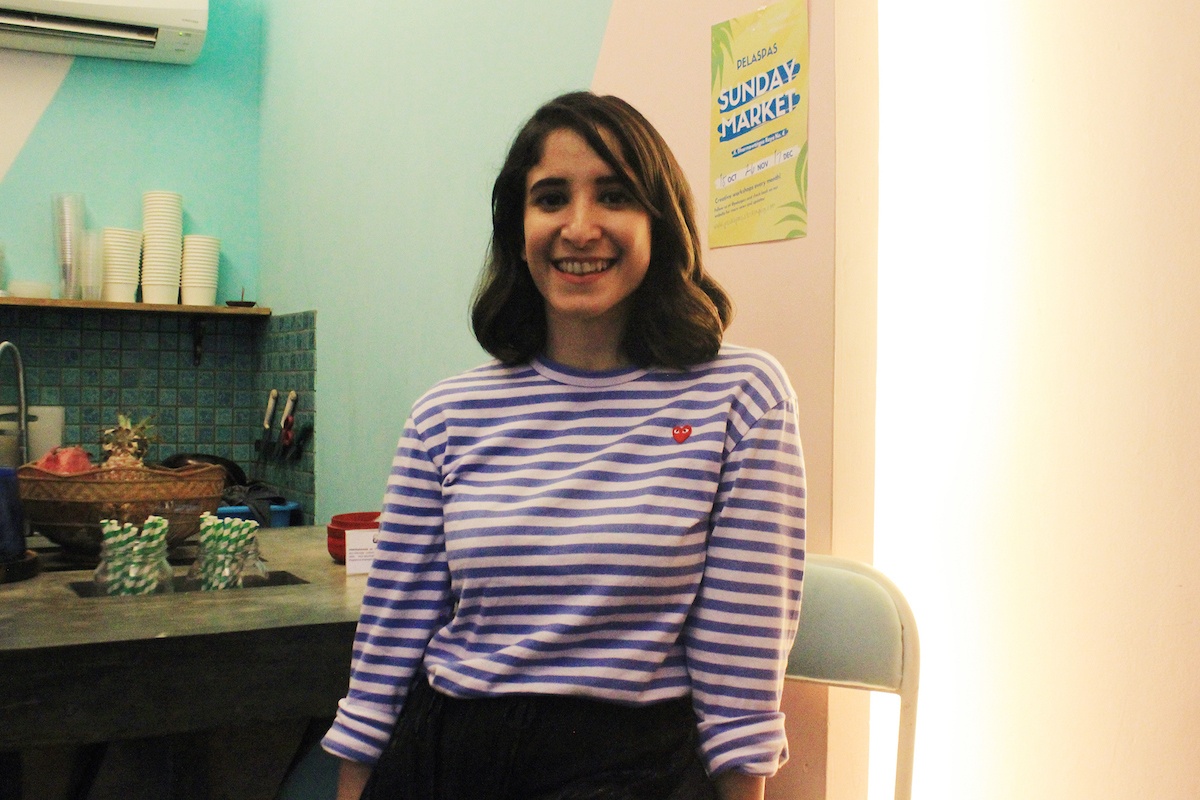ANGIN Women’s Spotlight series seeks to showcase a diverse array of inspiring women leaders and their stories and experiences in order to shed light on the unique experiences of women in business. We hope that both men and women can gain from these shared experiences, that these stories can inspire change, and that other young girls are motivated to become leaders as well.
Tell me anything you want to tell me about SNCTRY.
I started SNCTRY two and a half years ago. Basically the philosophy behind SNCTRY is to create a place where you can be happy, as we believe that by feeding your body with food that is good for you, happiness will come from the inside and out. Here, not only can you find food that healthy and nutritious, we try to be a business that is holistically good for the wellbeing; we have a bright colorful space, very friendly staff and we are also environmentally conscious. We only use local ingredients, the store itself uses a lot of recycled furniture and we are moving towards being 100% plastic free. So it is a holistically ‘good’ place where you can feed your body well and be happy in knowing that you are supporting a responsible business.
In the food and beverage scene in Jakarta, do you see this holistic philosophy or health trend as something that’s growing bigger?
When we started we were one of the first healthy food places. I remember when I first opened people were like, “You know, I don’t think Indonesians will want this food,” ‘cause you know the diet here is very very different and people are not aware of nutrition.
Anyway since then, the trend has definitely grown, from being the first place in Jakarta to serve a smoothie bowl, now you can find it in a lot of places in town. So the health food trend is definitely something that is on the rise, Jakartans are more aware of health food and nutrition now compared to how they were 2 years ago.
Which is amazing, to know that something we brought here has changed people’s mentality towards health food. Take our smoothie bowls, it’s not like its green or it’s a salad, it’s friendly and it looks nice, so people are more keen to try it.
In terms of the holistic philosophy, that’s something that is growing at a slower rate, but it’s nice to see that more and more cafes are moving to being more responsible.
Do you have any comments or tips to stay afloat in the very competitive F&B in Jakarta?
You have to stay true to your business, with Snctry we are quite strict on our food, we only use fresh, pesticide-free, local produce, we don’t use palm oil, we don’t use refined sugar so we stay true to this and we do not compromise on this quality. So it’s very important to never compromise the quality of what you sell.
Another tip is to always create new things, be experimental and creative and create new menus, like seasonal menus, so your regular customers don’t get bored.
How is the gender landscape in F&B? Predominantly female? Male? 50/50
From what I can see, usually people go into F&B business in groups, and its predominantly males. I would say 70- 30.
Do you find challenges being a female entrepreneur in this industry? If so how do you overcome those challenges?
Actually for me personally, I’ve never seen gender as a challenge. Previous to starting snctry I was working in Australia in a very male-dominated industry.
The challenges that comes with being an entrepreneur comes to any entrepreneur, both male and female.
For me, I personally don’t focus too much on the challenges, but I focus on the positive things I want to achieve. I have a ‘just-do-it’ mentality, because the more you think about it, the more you get scared and the more it becomes a hindrance.
Do you have any tips for women breaking into this industry?
To do something you’re passionate about – is definitely a key, it will keep you going when the challenges come. But again, in order to break into any industry, you shouldn’t see gender as something that should stop you, If you think it is then you are agreeing to being less equal to men, I mean really, there’s nothing that we females can’t do now, especially in this day and age. There will definitely be difficulties, but I’m sure if you have enough courage and you put your mind into it, you can do it. Anyone can.
Any tips on the F&B industry in general?
Again, do something you’re passionate about, something you love. If it’s something on trend, that always helps to kickstart the marketing but you need to have a good product for people to keep coming back. Realize what your market is, what their behavior is like, for example the people in Jakarta loves to take pictures of something new and on trend, so you should use this to your advantage, something photogenic is always good here.
Favorite item? What should I try right now ?
I recommend the coconut breeze smoothie bowl with extra granola for me its super delicious and refreshing. You don’t even realize that it’s healthy because you get the sweetness from all the tropical fruit, it’s cold and fresh like a healthy ice cream and you get a lot of energy from the granola. It’s really good for you, and you feel super nourished afterwards. So yeah, that’s what you should try right now!
